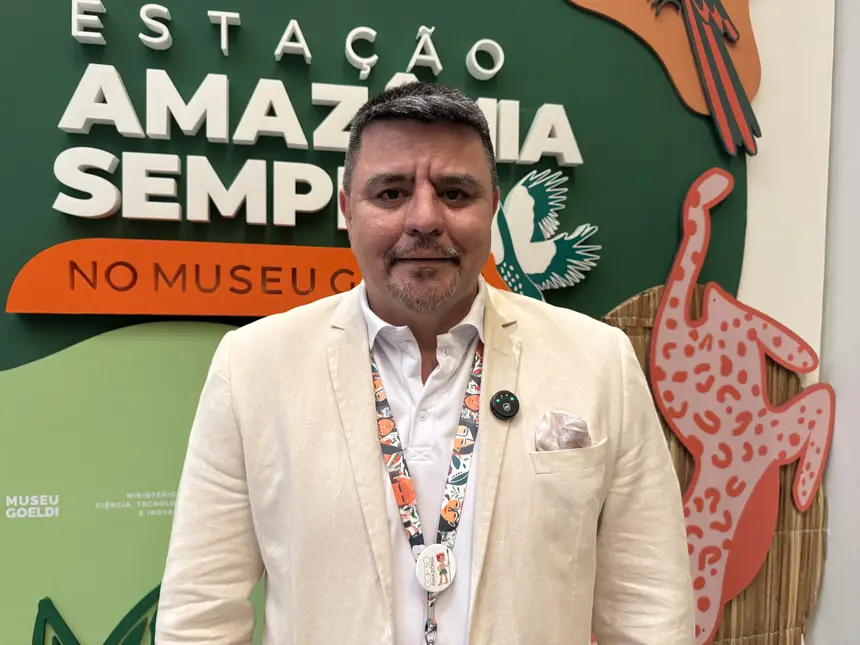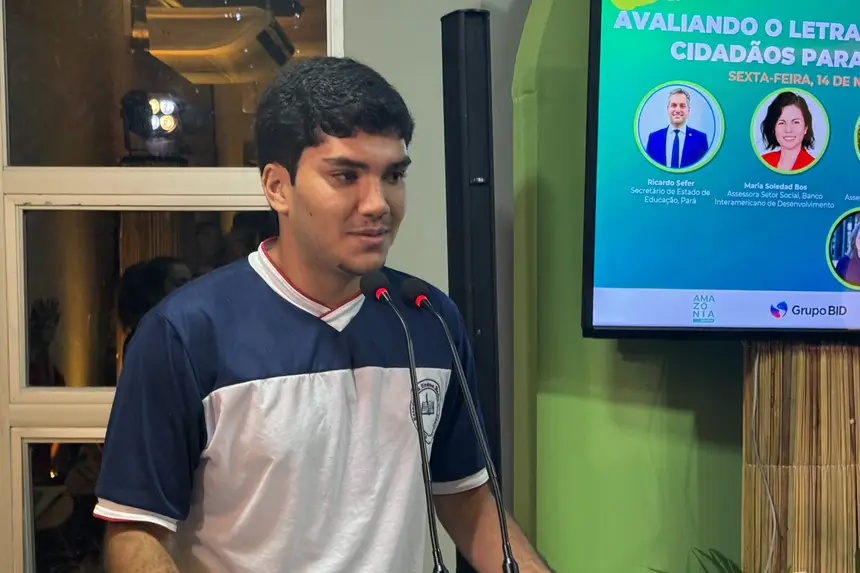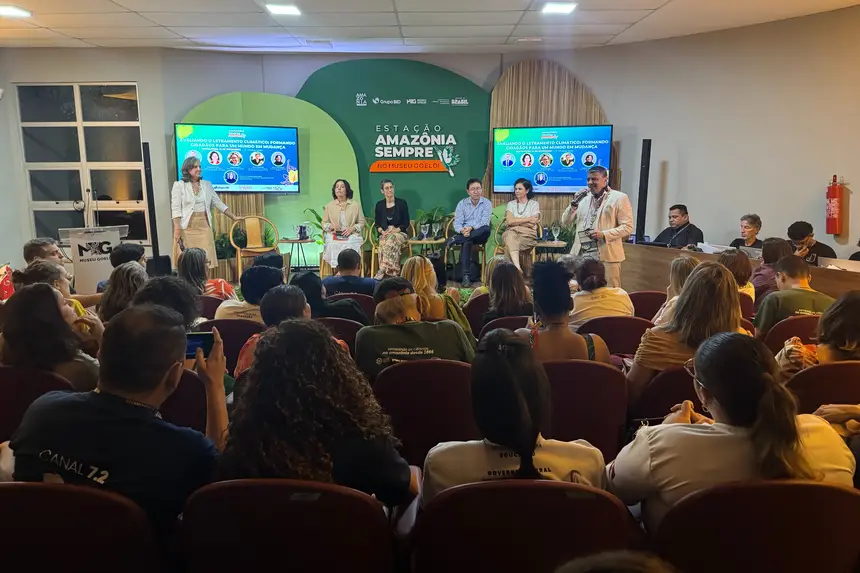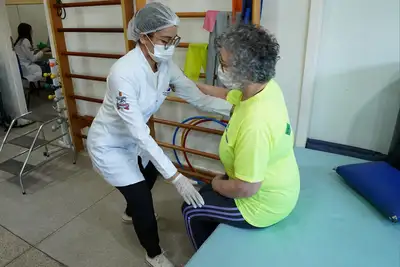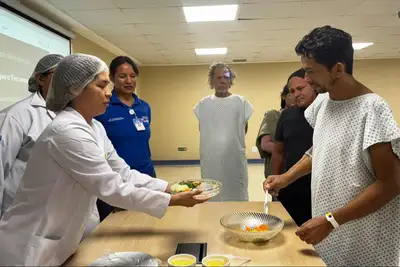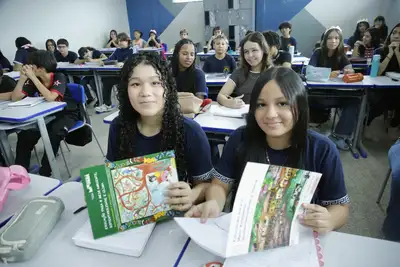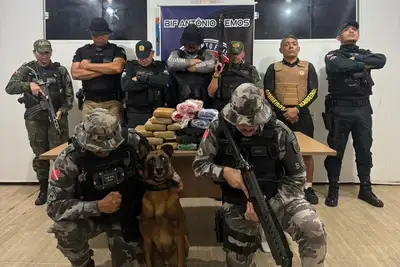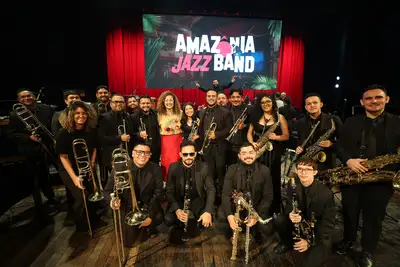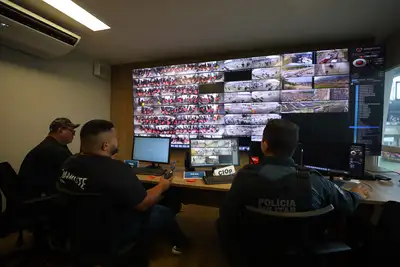Seduc stands out in dialogue on Environmental Education and sustainability in Pará
The Secretary of Education participated in the debate on climate literacy, promoted by the Inter-American Development Bank (IDB) in partnership with the Organization for Economic Cooperation and Development, UNESCO, and the Emílio Goeldi Museum
At the center of climate discussions, the State Department of Education (Seduc) stands out as the pioneering state to implement the curricular component Environmental Education, Sustainability, and Climate in 2024.
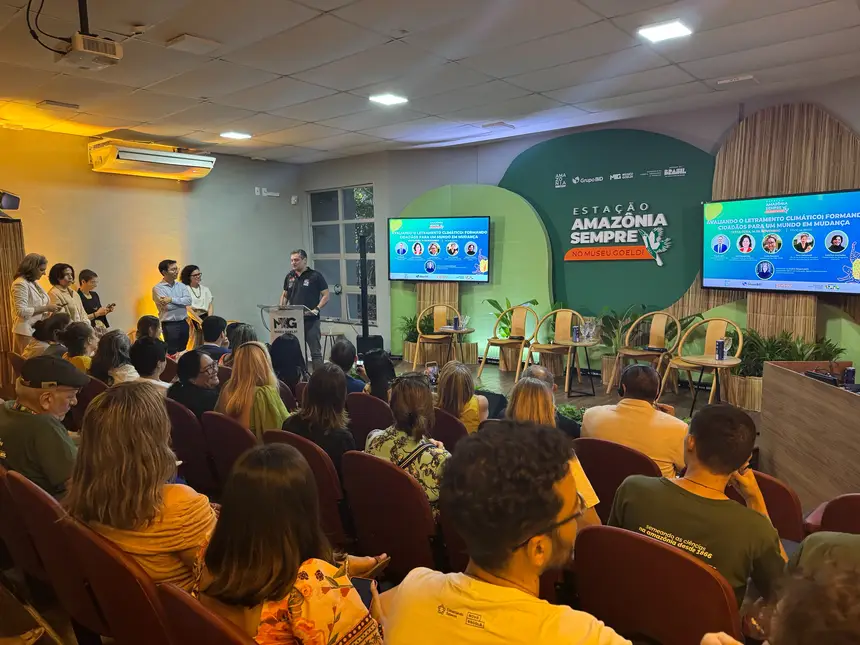
On this Friday (14), the head of Seduc, Ricardo Sefer, participated in the meeting promoted by the IDB and the Emílio Goeldi Museum, with the theme: "Assessing climate literacy: training citizens for a changing world," where he presented what the secretary has been implementing in recent years and the advances in Environmental Education and sustainability in Pará.
The Secretary of Education emphasized the pride of being the pioneering state to implement the subject.
"I am very proud to be part of this project and now to be at the forefront of the Secretary of Education of Pará, which is a pioneer in Brazilian education. We approved, in 2023, a state law that established the policy of school environmental education at all levels of basic education, from elementary 1, elementary 2, and in high school. We are about to complete the second closed school cycle of environmental education. This is emblematic, it is powerful, it branches out to the emblematic result for Pará society. To give you an idea of the dimension of the state public network, we represent about one-eighth of the entire Pará population directly served by the public education services of Pará. There are more than 500 thousand students, about 530 thousand students in a state that has a total population of 8 million inhabitants, these are truly confusing numbers. Our network is composed of more than 40 thousand education professionals. With great pride, with great honor, I tell you that environmental education is today not as an obligation, but as a subject of responsibility, as a gift of responsibility for the future, and it is in the effective daily life of our network. It is not an obligation of the law that we fulfill because it is in the law, but it is a much more, much earlier obligation, a moral obligation," said Ricardo Sefer.
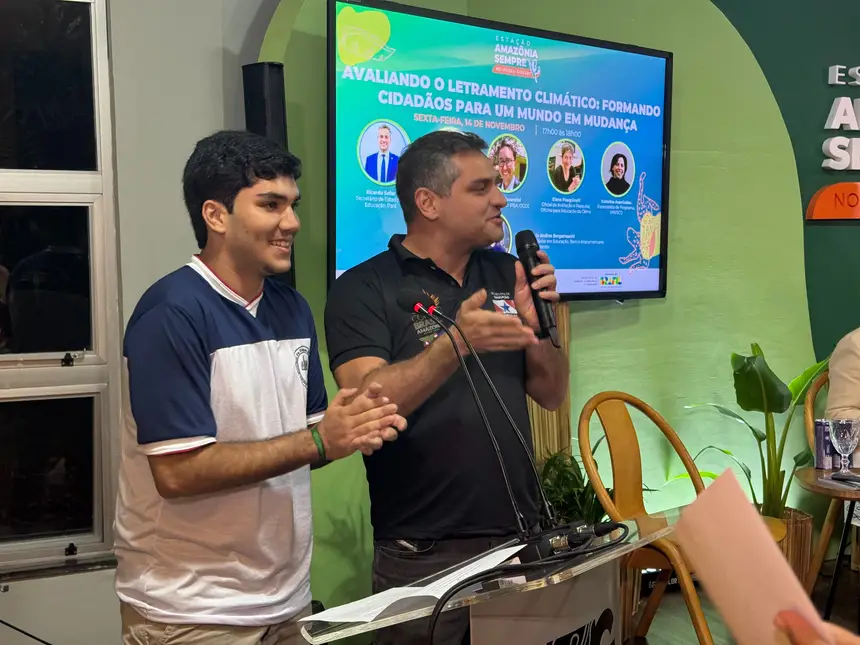
In his speech, Ricardo Sefer highlighted the central axis of action, which is the Formal Education Policy for the Environment, Sustainability, and Climate, established by State Law No. 9,981 of 2023, which positions Pará at the forefront of climate education in Brazil.
In addition, he emphasized investments in infrastructure and pedagogical support, such as the distribution of specific teaching materials for teachers and students, including in partnership with UNESCO and UNICEF, as well as ongoing training and specialization courses for the more than 4 thousand teachers who teach the new component as a guarantee for the effectiveness of the transformative policy.
Another important factor mentioned was the creation of the Center for Innovation and Sustainability in Basic Education (Ciseb), one of the six axes of the policy that focuses on teacher training and the use of modern technologies, such as robotics, for the development of environmental solutions.
The program included the participation of representatives from the United Nations Educational, Scientific and Cultural Organization (UNESCO) and the Organization for Economic Cooperation and Development (OECD), who spoke about climate change, human intervention, and the encouragement of projects in the classroom that increasingly address climate themes, so that students feel more empowered on the subject and change their behaviors, such as daily purchases to be more conscious. The senior advisor of the OECD, Mario Piacentini, emphasized the important initiative of SEDUC in the area of technology and sustainability.
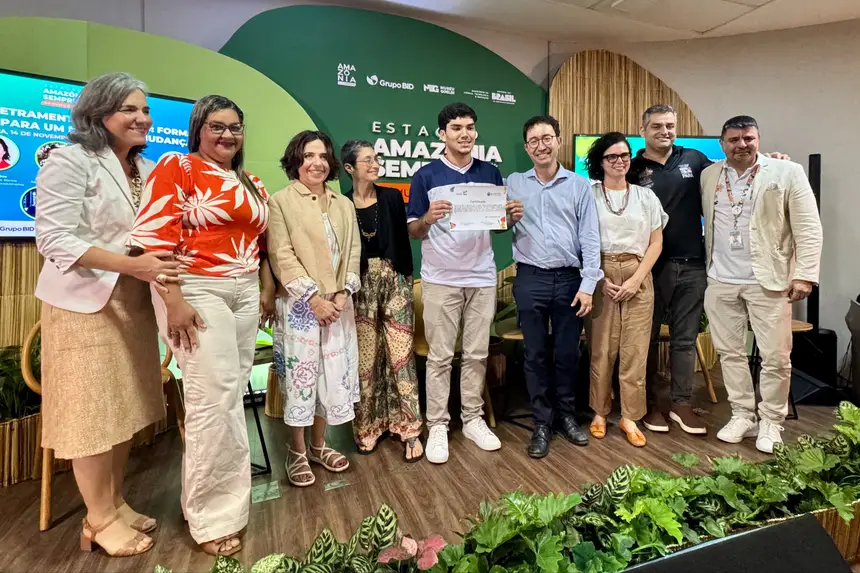
"The work developed by Seduc is making a difference in schools. I saw yesterday, during a visit to CISEB, that the secretary is changing the way of teaching, teachers along with students create projects to improve the environment," said Mario Piacentini.
At the end of the meeting, student Artur Sanches, from the 9th grade of the Dr. Fábio Luz State School, located in Tomé-Açu, received a certificate for achieving first place in the "Climate Literacy" exam, conducted by the OECD in partnership with Seduc in a pioneering initiative that seeks to measure the level of knowledge, attitudes, and competencies of students regarding climate change.
"It is very gratifying, right, to be the first in the state in such a difficult test like this. We, from Pará, are already somewhat inserted in the environment, and when you go further into the interior, like me, who is from Tomé-Açu, we end up being able to live the environment, and this also makes it easier for us to know some things," said Artur.
Environmental Education - Since the 2024 school year, the state education network has included the curricular component Environmental Education, Sustainability, and Climate, created in alignment with the Public Policy for Education for the Environment, Sustainability, and Climate, launched by the State on June 5, 2023.
The state of Pará is a pioneer in ensuring the component in 100% of state schools, at all levels of education, mandatorily, including having its own and regionalized teaching material to enhance the teaching-learning process of students, in addition to offering ongoing and specialized training for teachers.
The environmental education coordinator of Seduc, Mauro Tavares, explains the objective and importance of the exam.
"For the first time in the world, an assessment aimed at our youth is being applied, a partnership between Seduc and the OECD that has been applying the exam for several years in various countries around the world, signatory countries, but always addressing issues related to Mathematics, Language, and Sciences. So, there is already an OECD study to apply, starting in 2029, an assessment also on climate literacy, and Pará and Brazil were chosen as a pilot to be applied in our network. And today we are here to celebrate the delivery of this report and, mainly, to certify our student who had the highest score, an excellent score above 93 points, on a scale that goes from 0 to 100," explained the teacher.




